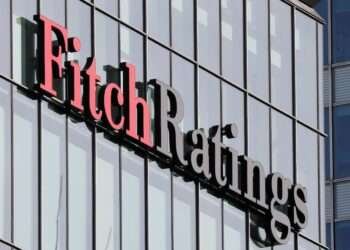Recent discussions surrounding the existence of a personal credit scoring system in Ghana have been clarified by the Bank of Ghana’s 2022 Credit Reporting Activity Credit report. Contrary to popular belief, the report reveals that Ghana currently operates a credit-reporting system managed by a few credit bureaus, not individual credit scores.
In a bid to enhance the credit landscape, the Bank of Ghana has engaged in discussions with credit bureaus to introduce a credit-scoring system. This initiative stems from the introduction of the Ghana Card, providing a unique identifier for credit information subjects. The plan is set to unfold in the coming year, with financial institutions updating existing credit information using the new Ghana Card details.
This revelation by the Bank of Ghana aligns with Vice President Dr. Mahamudu Bawumia’s recent statement disputing the existence of a credit scoring system in Ghana. Dr. Bawumia emphasized the forthcoming introduction of a personalized credit scoring system, leveraging the Ghana Card to distinguish between high and low-risk borrowers.
However, skepticism arose following Dr. Bawumia’s announcement. Bright Simons, Vice President of IMANI, challenged the statement, arguing that there is currently no credit scoring system in Ghana. Analysts have since debated this, pointing out a crucial distinction between credit reports issued by credit bureaus and individual credit scoring.
Economist Dr. Theo Acheampong, meanwhile, expressed support for the initiation of a new credit scoring system in Ghana. He clarified the difference between credit reports and credit scoring, emphasizing that the current data provided by credit bureaus are amalgamated reports comprising various data points such as personal details, credit account summary, address history, guarantor details, and telephone history.
Dr. Acheampong highlighted that the existing system lacks the capability to generate a composite credit score, a feature offered by companies like Experian and TransUnion. Drawing a parallel with the UK, where he is based, he showcased the utility of an individual credit score, which allows seamless access to various financial products.
Potential Impact of A Personalized Credit Scoring System
Amidst the ongoing discourse, it’s essential to acknowledge the potential impact of a personalized credit scoring system on the financial ecosystem of Ghana. Such a system holds the promise of fostering responsible lending and borrowing practices by providing a nuanced evaluation of individuals’ creditworthiness.
This shift towards a more sophisticated credit assessment mechanism could empower consumers to make informed financial decisions, while financial institutions gain better insights into risk management.
However, challenges lie ahead in the implementation of this credit scoring system. Ensuring data accuracy, privacy protection, and widespread awareness are critical aspects that demand meticulous attention. Transparent communication and collaboration between the Bank of Ghana, credit bureaus, and other stakeholders will play a pivotal role in overcoming these hurdles.
The success of this initiative hinges on a well-coordinated effort to build trust among the public and streamline the integration of the new credit scoring framework.
Looking beyond the domestic landscape, the introduction of a credit scoring system in Ghana positions the country on a trajectory towards aligning with global financial standards.
As economies worldwide increasingly adopt sophisticated credit assessment tools, Ghana’s move reflects a commitment to staying abreast of international best practices. This transition not only elevates the nation’s financial infrastructure but also signals its readiness to participate more actively in the global financial arena, potentially attracting increased investment and fostering economic growth.
As Ghana moves towards implementing a credit scoring regime, the debate sparked by conflicting statements from key figures underscores the need for clear communication and understanding of the evolving financial landscape in the country.






















